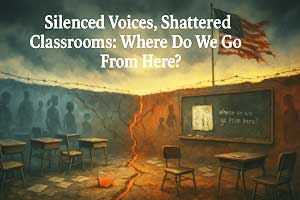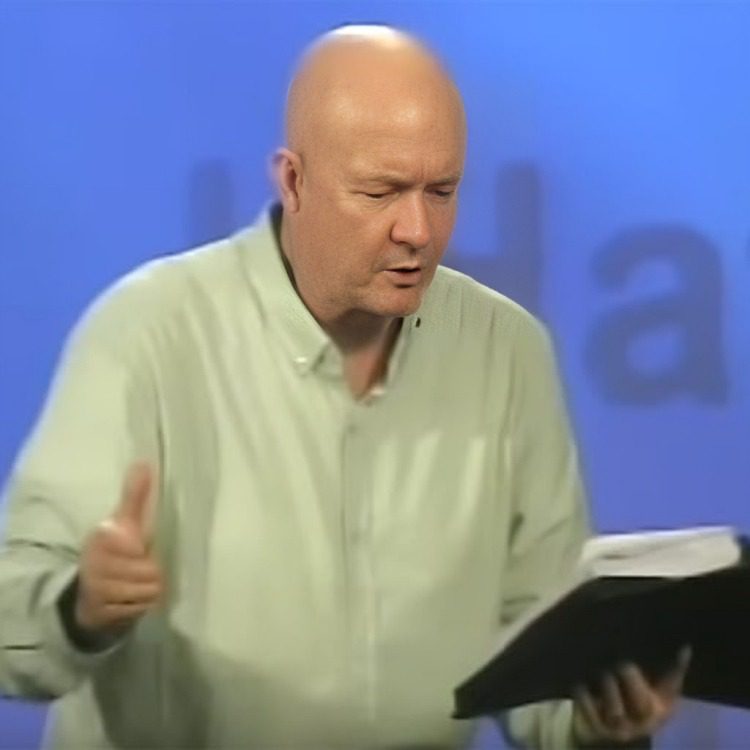Silenced Voices Shattered Classrooms: Where Do We Go Now?

The assassination of Charlie Kirk and the tragedies of school shootings weigh heavily on our national conscience. These events strike at the very core of who we are as a people. They force us to examine our values, our divisions, and the deep brokenness in society.
Each act of violence leaves scars on the victims and their families. But the impact spreads further. Fear, anger, and uncertainty ripple through communities across the country. These tragedies raise hard questions. How safe are we? How much do we value life? What responsibility do we bear when hatred or chaos erupts into bloodshed?
The weight of these moments is not only about the loss of life. It is about the sense that violence has grown common, almost expected. When a voice is silenced through assassination, or when a classroom becomes a place of mourning instead of learning, the damage runs deeper than numbers. Culture shifts. Trust fades. Even the way we see one another begins to change. Many respond with rage. Others with despair. Some grow numb from the repetition of tragedy. Ignoring this leaves us unable to heal or confront the fractures that divide us.
The pressing question is: what comes next? Will we stop at thoughts and prayers, or will we have the harder conversations? These talks force us to face truths about politics, culture, and community. Do we sink into cynicism, or do we search for real solutions that put compassion above division? Reflection is not enough. Engagement is required. The weight of silence also carries consequences.
This is why I want to talk about it. I have two grandsons in college. One day, I hope to see great-grandchildren entering schools, full of life and hope. What can we do, not only to make schools and colleges safer, but also to end the hate and division that tear at our nation? How have the recent events affected you individually?
It has been a few weeks now since these events occurred. What effects from them do you continue experiencing?

There has been evil in this world since Adam & Eve chose to follow their own way instead of God’s way. Since that time and until Jesus comes back, its about daily choosing God’s way, in our personal lives, as a nation and as humanity. The US has changed dramatically during my lifetime of 70+ years. Parents began to let children “choose their own way” with little guidance from God’s Word. People began to be more concerned with fulfilling their own needs, rather than serving God and others, which destroyed marriages and families to the point that many did not see the need to even get married. As selfishness prevailed, fathers abandoned their families to become successful in careers or other pursuits and women turned their hearts from God and family to seeking satisfaction in all of the wrong places, neither considering the consequences. Once you take God’s Word out and there is no absolutely right or wrong, everyone is free to do what they want and lose respect for life itself. Killing is ok if you can justify it in your own mind. That God-shaped empty space in each person is filled with other things, often evil, hate and violence. But their is hope, and it begins with believers repenting of our sins and our silence and making a daily commitment to love God and submit totally to His will. This will lead to strong relationships, marriages and families. We will love others as God loves us, which will open their hearts, by the Holy Spirit and draw them to the One, True God, that they may find forgiveness and eternal life, through our Savior, Jesus Christ. He will make them them a new creation and remove their hearts of stone and and give them His heart of overflowing love, joy and peace. This is the answer, the only answer. Charlie’s example and then his heinous assasinaton has awakened many. Our lives and our intercession and prayers are the tools of God to bring All back to him. Therefore, if anyone is in Christ, he is a new creation; old things have passed away, behold all things have become new. Now all things are of God, who has reconciled us to Himself through Jesus Christ, and has given us the ministry of reconciliation; that is that God was in Christ reconciling the world to Himself, not imputing their trespasses to them and has committed to us the word of reconciliation. Now then, we are ambassadors for Christ, as though God were pleading through us; we implore you on Christ’s behalf, be reconciled to God. For He made Him who knew no sin to be sin for us, that we might become the righteousness of God in Him. 2 Corinthians 5:17-20
That’s interesting, Kathy. Yes, a lot has changed during our lifetimes. Still, with all the heinus actions of today and political hate, I see good and love. However, I’ve been told more than once that I live in a bubble. I agree. I have a bubble made of the greatest people I know. They are who I focus on. I was sitting, meditating on my balcony a few days ago. I was thinking about how dysfunctional people are and then realized, had it not been for Jesus Christ, there go I. The Father, the Son, and the Holy Spirit have saved me from who knows what. Salvation is not only for later. Salvation is for now.
So true, Pastor. I also live somewhat in a bubble, but I do try to expand my horizons to at least be aware of what others are struggling with. I am sometimes horrified with the hate that I see, but that also brings a sense of thankfulness for my salvation (as you said) and also compassion and prayer, because you can see so clearly that they are caught in Satan’s grip.